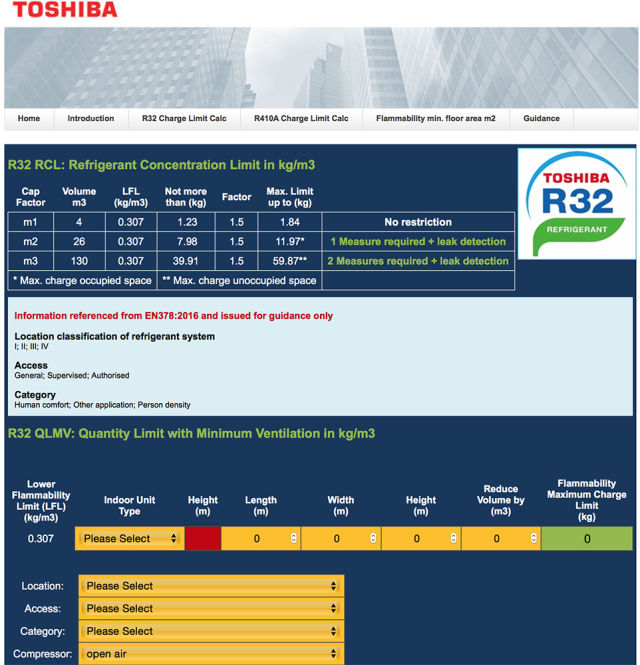Toshiba focuses on R32 safety compliance

Toshiba has developed an online tool that automatically checks R-32 refrigerant-based air conditioning designs for compliance with the safety requirements of European Standard EN 378.
EN 378 – Refrigerating Systems and heat pumps: Safety and environmental requirements sets out limits for refrigerant charge size in occupied spaces. These vary according to the toxicity and flammability of the refrigerant, the size of the occupied space, the accessibility of the area, and the scale of possible exposure by individuals and the public in the unlikely event of a refrigerant leak.
“The calculation for specific projects under EN378 becomes quite complex, due to the number of variables involved,” said Oliver Sanders, TCUK’s new equipment pre-sales manager. “The tool enables designers to quickly input the key details for a project and simply hit return; it automatically calculates whether the proposed system is compliant or not.”
If a proposed design proves to be non-compliant, the tool suggests practical mitigation measures that can be used to ensure the project meets the requirements. These may include installation of a fixed refrigerant monitoring and alarm system, use of isolation valves, and/or installation of ventilation fans in the area affected by a potential leak.







